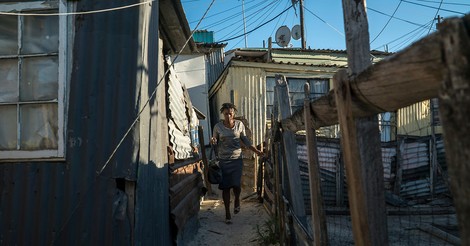Your podcast discovery platform
Curious minds select the most fascinating podcasts from around the world. Discover hand-piqd audio recommendations on your favorite topics.

piqer for: Globalization and politics Climate and Environment
My name is Kait Bolongaro and I am an award-winning journalist. My work has been published by Al-Jazeera English, BBC, The Guardian, NPR, VICE, Deutsche Welle and the Middle East Eye. I’ve covered politics, science, business, human rights and the environment from Europe, Africa, Asia, the Middle East and Latin America.
South Africa's Political Russian Roulette
Twenty-three years after apartheid, South Africa remains one of the world's most unequal societies. While most white citizens enjoy living standards similar to Europe, their black compatriots continue to struggle.
Despite the end of legal segregation, the economy designed to provide cheap black labour to white-owned companies has endured. Nearly half of the population lives in poverty and one in four adults is unemployed.
However, voter discontent may finally force the government to act. Last week, the nation’s Deputy President Cyril Ramaphosa, promised to introduce a minimum wage by May 2018. The current proposal? About $260 per month, or $1.50 per hour.
It is about time that Africa's largest economy steps into its role as a leader on the continent by setting more progressive legislation. Other countries such as Ghana and Ivory Coast, both of which have lower GDPs, have already enacted minimum wage laws as a tool to raise vulnerable citizens out of poverty.
In this piece, Norimitsu Onishi, the New York Times' southern Africa bureau chief, does an excellent job portraying the human face of inequality in South Africa, while outlining the government's political Russian roulette with growing inequality.
Stay up to date – with a newsletter from your channel on Globalization and politics.
